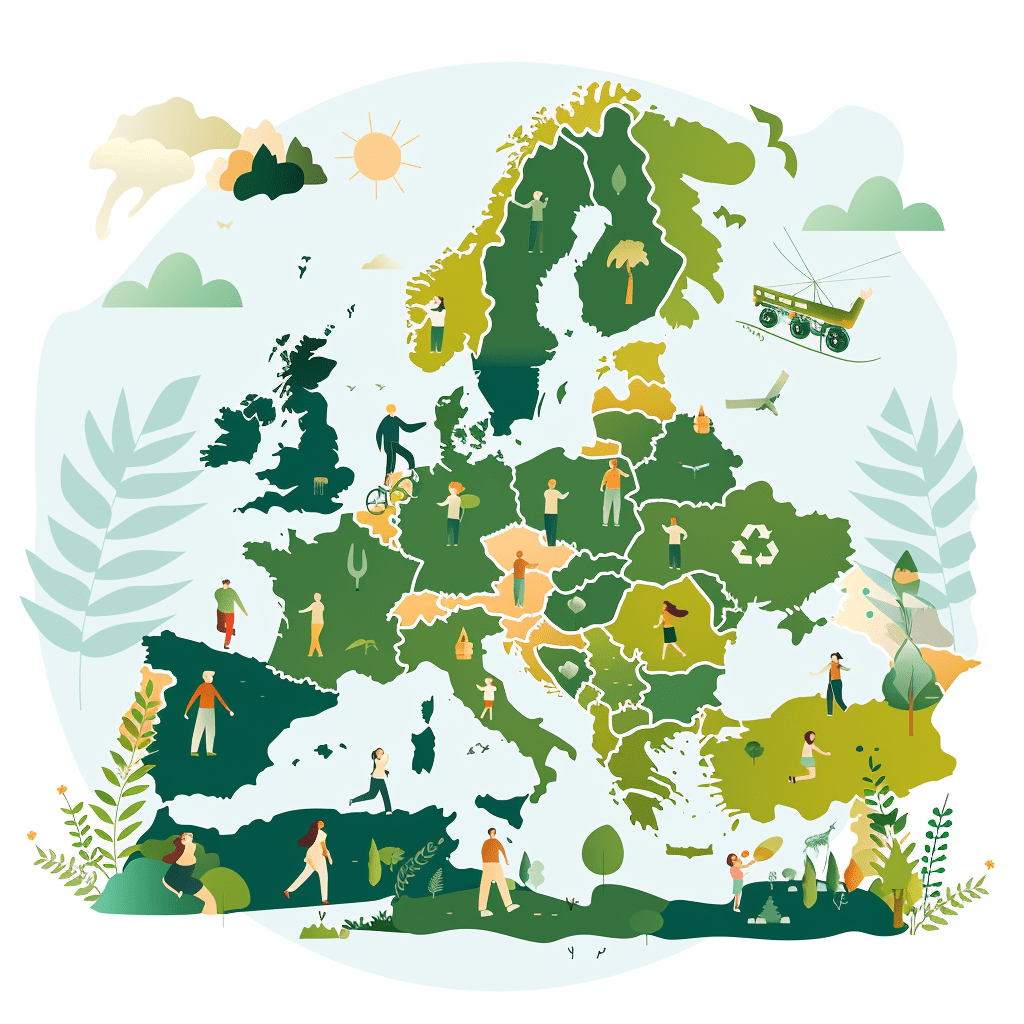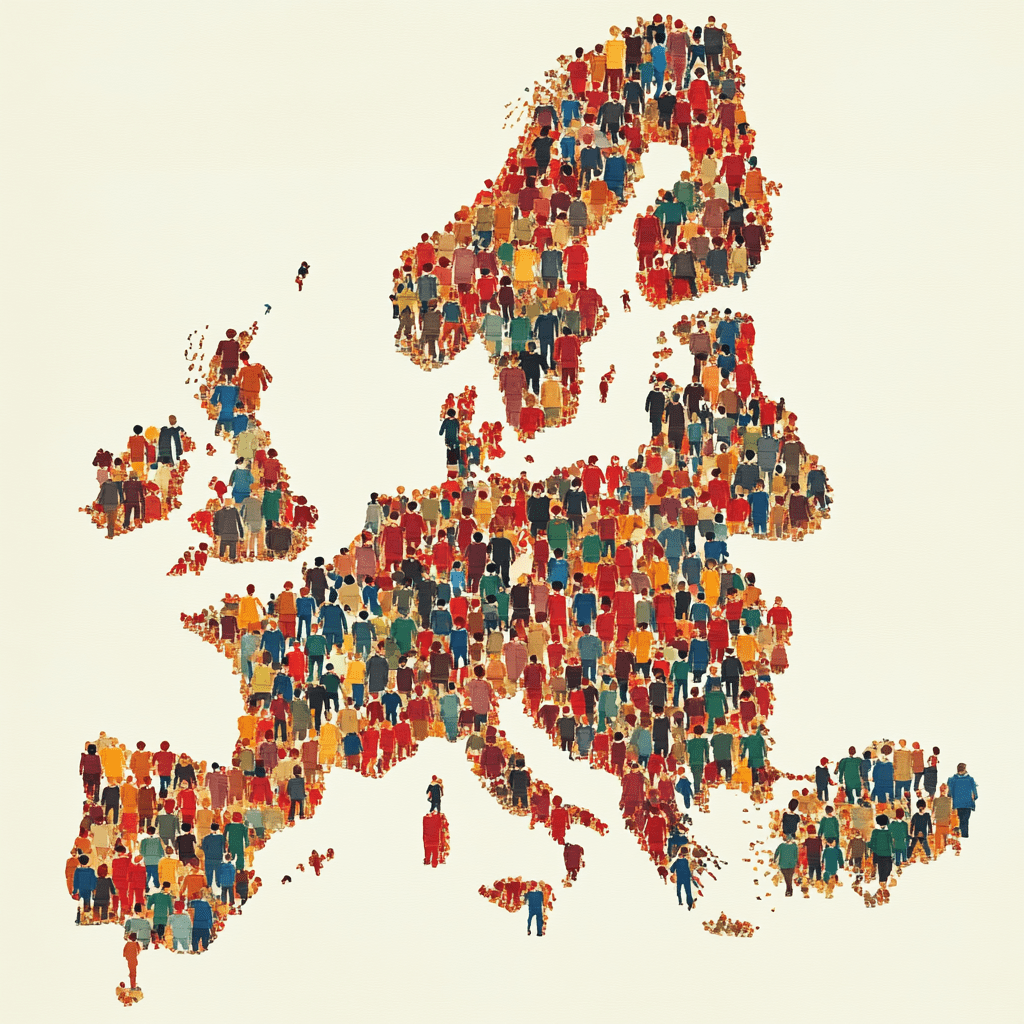Publications
IEP@BU Publication Policy
The Institute for European Policymaking (IEP@BU) publishes a range of content formats to advance rigorous, policy-relevant research and foster informed public debate on European affairs. Our publications—authored by IEP fellows, affiliated researchers, and external contributors—reflect the Institute’s commitment to analytical depth, relevance, and independence.
Types of Publications
● IEP produces and disseminates the following categories of content:
● Commentaries (max. 900 words): Short opinion pieces on timely policy debates, published under the responsibility of the Director and Communications Advisor.
● Interviews with policymakers, scholars, and thought leaders.
● Event-related content: Includes event presentations, slide decks, and videos
● Policy Briefs: Policy-oriented documents comprising an executive summary and a full-length PDF, offering actionable insights and recommendations.
● Working Papers: Original research products developed within IEP-supervised or funded projects.
● Co-authored Reports: Collaborative publications with external institutions on major policy issues.
Approval and Editorial Process
IEP’s editorial process balances academic freedom with internal quality control. The following procedures apply:
● Commentaries, interviews, and event-related content are reviewed by the Director with the support of the Communications Advisor.
● Policy Briefs and Working Papers: The Director approves the publication after an internal review process that includes soliciting feedback and comments from the full Managing Board, and occasionally from IEP fellows with subject-matter expertise.
● Reports are long-term projects pre-approved by the Managing Board and supervised by the Director or another Board member throughout their development.
Definitions
● A Working Paper is a research product that originates from a project initiated, funded, or supervised by IEP. It reflects IEP authorship and resource investment, and typically includes at least one internal presentation to the IEP community during its development or prior to publication.
● A Policy Brief is a concise, policy-focused publication designed to inform public discussion or decision-making. It includes a stand-alone executive summary and a full document in PDF format. Policy Briefs may be discussed in digital or hybrid events, either before or after publication.
● A Report is a digital publication co-authored by IEP fellows and members of other research institutions. Reports address major issues in the European policy debate that require a comprehensive approach, and they offer a broad set of policy recommendations.
If you want to submit a commentary or a proposal for a Policy Brief or other projects, please write to iep@unibocconi.it

While economic theory and empirical evidence on human capital affirm the positive effects of education and training on productivity and economic growth, there is a tendency to treat skills enhancement as a universal remedy for labor market inefficiencies. A Policy Brief by Pietro Galeone

A peace-enforcement mission, complemented by security assistance, stockpile regeneration, and a dedicated financial framework, would provide the necessary deterrence and resilience against future Russian aggression. A commentary by Andrea Gilli, Mauro Gilli, and Niccolò Petrelli

European countries should plan for a Peace Enforcement mission and prepare for either Non-Combat Security Assistance and Support or for Mobile Rapid Reaction Force in order to be prepared for a “what if conflict resumes”. A Policy Brief by Andrea Gilli, Mauro Gilli, and Niccolò Petrelli

Voluntary certification is a novel approach that can restrict the harmful practices of some dominant platforms and motivate and reward emerging platforms that align their practices with the public interest. A Policy Brief by Dovev Lavie, Oreste Pollicino, and Tommaso Valletti

The global financial system is at a crossroads of two related processes: post-crisis reform—the so-called Basel III—that is missing its final stage, and the new political course in the United States, where the incoming administration has declared war on all pre-existing rules.

A recently published report by the Institute for European Policymaking, written by a multidisciplinary team of researchers at Bocconi University and the Toulouse School of Economics, provides timely insights into these challenges and offers concrete policy recommendations across three critical areas

In a nutshell, we see that 80 years of prime partnership have created a solid base of mutual appreciation and similar sensitivities. Europeans and Americans still see in the other their most valuable ally, NATO is highly regarded and cooperation trumps competition. However, eight years of American hyper-polarisation at home and mixed messaging abroad have taken their toll. In 2024, 63 percent of Europeans agree that it is time for Europe to go its own way.

Reduced economic insecurity generates not only a direct increase in demand for populist commitments but also a change in culture in the direction of lower trust and prevalent exclusionary rhetoric, which in turn are further indirect channels through which populist movements thrive

Lack of integration of capital markets is a major source of weakness and declining competitiveness of the European economy. While efforts to complete harmonization of capital market legislation in this domain should retain highest priority in the new Commission’s work programme, there is room to advance integration by exploiting the STS regulation introduced by the EU in 2017 as part of its broader efforts to implement the CMU.
The main finding is that at the peak of the latest tightening cycle, the ECB monetary policy stance was no more restrictive than it was at the peak of the two preceding ones; actually, probably less. Report Co-ordinator Francesco Decarolis.

“The Commission would like to be taking the lead on defense policy, but defense remains the domain of Member States”. Thomas Gomart is one of the most influential experts on foreign relations and geopolitics at the EU level: he has been director of the Ifri, Institute Francais de Relationes Internationales, since 2015. An expert in Russian geopolitics and the history of international relations, he has recently published the book L'accélération de l'histoire. Les noeuds géostratégiques d'un monde hors de contrôle ( Éditions Tallandier, 2024).

The first elected president of the European Council, Herman van Rompuy, discusses how to fix the decision-making process at the EU level

On 16 October 2024, Claudia Buch delivered a lecture titled Bank Profitability: A Mirror of the Past, Creating a Vision for the Future at Bocconi University. The event was co-organized by the Baffi Center on Economics, Finance, and Regulation and the Institute for European Policymaking @ Bocconi University (IEP@BU).

Building on a previous analysis of the trends of convergence and divergence between peripheral and core EA-12 countries after the euro area sovereign debt crisis (Bordignon et al., 2023), this work investigates the long-term evolution of such differences in economic, institutional, and political outcomes, testing whether a pattern of convergence was finally resumed and comparing the effects of this crisis with those induced by the Covid-19 pandemic.


On September 19, mister Roth gave a lecture to Bocconi students titled “Europe at the Crossroads: Turning Today’s Poly-Crisis Into Tomorrow’s Poly-Opportunity”. Eleanor Spaventa, a professor of European Law at Bocconi and a member of the IEP@BU managing board, chaired the event co-hosted by IEP@BU and the Department of Legal Studies.

While the focus of the new Commission will be crystallizing over the months and years to come, this short analysis of the mission letters for the future Commissioners suggests that the recent intervention of Mario Draghi on Europe’s competitiveness has been agenda-setting for the policy priorities as defined by Commission President Ursula von der Leyen.

The economic transformation required to reach global net zero goals relies on the mining and transformation of certain minerals and metals for the production of low-carbon technologies. Increasing global demand for these critical materials, combined with their uneven geographical distribution, raise potential supply issues that pose economic security and transition risks for the European Union. This report sets out the nature of the challenge, the policy responses and ways forward for the bloc.

The September 2024 state elections in Germany mark a low point in public support for the governing left-wing coalition and a high point for the populist right. Often overlooked, the elections might also mark the fading of the German socialist party Die Linke into political irrelevance. Its demise teaches us valuable lessons for modern European politics
The fight against poverty is not a new one. It has been a feature of national policies and academic research for many decades. However, the ways in which a State fights against poverty have changed over time, continuously evolving to approach new challenges through the adoption of new tools and policies.

The report on The Future of European Competitiveness presented by Mario Draghi provides a clarion call for economic reforms to stop Europe’s relative decline. This short comment cannot do justice to the report with over 300 pages of supporting material. We will concentrate just on two key messages regarding innovation and investment.

As Europe begins to face the start of its own relationship with fentanyl, it is paramount that policymakers learn from the lessons of American and Australia in crafting their response. Policymakers need to bear in mind that drug users are consumers who will respond to the changing economic environment wrought by their efforts.

The mobile telecom sector is often taken as a case study of fragmentation of the single market leading to less investment and a loss of technological leadership. However, a closer examination of the data suggests that the fragmentation also implies more competition leading to lower prices for consumers in Europe.

A popular thesis in policy circles is that there is an “investment gap” that Europe needs to fill to face the great challenges of our times, such as the digital and green transitions. However, the notion of the “investment gap” used by policymakers is often vague and therefore it risks legitimate a wasteful allocation of public resources.

After revisiting the pros and cons, this paper concludes that, all in all, the rationale for introducing an ECB-sponsored digital euro for citizens, retailers, and producers, is not solidly established. Today’s highly dynamic, innovative, and efficient digital payment ecosystem does not require such an instrument, which would unavoidably duplicate existing applications and probably struggle to match private innovation.

If Trump is elected in November 2024, the security outlook of Europe could deteriorate very fast as Russia may attempt to seek the opportunity of taking NATO off balance. It is therefore essential that the Commission and the forthcoming Defence Commissioner begin the policy planning and design well in advance and preferably as soon as they take office, as to move past preliminary negotiations and have blueprints ready for approval should the situation require it.

There are lessons to be learned by comparing the most recent elections in France and the UK. The French electoral system is characterized by two-turn constituency elections where several short-listed candidates qualify for a second round should no-one reach more than 50% of the votes in the first round. The British system, conversely, assigns a given constituency seat to whoever wins the plurality in a given constituency, regardless of whether or not the candidate reaches 50%.

While defense procurement and production remain fragmented across Europe and the EU and its member states invest less in their security and defense than the US, new EU and EU-sponsored initiatives demonstrate that Europeans are aware of this and attempt to reduce these shortcomings – political and fiscal obstacles notwithstanding.

A key area of frustration for voters on both the left and the right is the poor performance of the NHS. With ever-longer waiting lists for hospital appointments and declining local services, voters are deeply concerned about the state of their beloved health service.

Defense expenditure in EU members rose by 50% (net of inflation) between 2015 and 2023, with an increase in the expenditure-to-GDP ratio (Figure 2, referring to the current EU members). The increase involved all EU members, including not NATO members during the period under consideration.

European politics has become more fragmented which makes governing a tall task, but also makes the EU more political. After decades of being perceived as too technocratic and distant, the fight for the European Union’s top jobs became more highly anticipated and much more political.

The European Sovereign Bond market gyrations erupted in the wake of President Emmanuel Macron’s call for a snap parliamentary vote after his party’s defeat to Marine Le Pen’s National Rally in the European elections have sparked a debate on the opportunity of an activation of the Transmission Protection Mechanism (TPI).

It is therefore possible that even the election of the Commission President will not change the overall picture, with the real game taking place whenever the European Parliament is called to vote on the fundamental choices that Europe will face in the coming years, from managing the digital and green transitions to fundamental decisions on the common defense and security policies.

In our first forecast for the EP 2024 elections based on our model, in January 2024, we predicted a “sharp right turn”. In our latest forecast, and our final one before the election, we are still forecasting that the next EP will be considerably more right-leaning than the current one, and that the two groups to the right of the EPP will be considerably larger than they currently are.





















